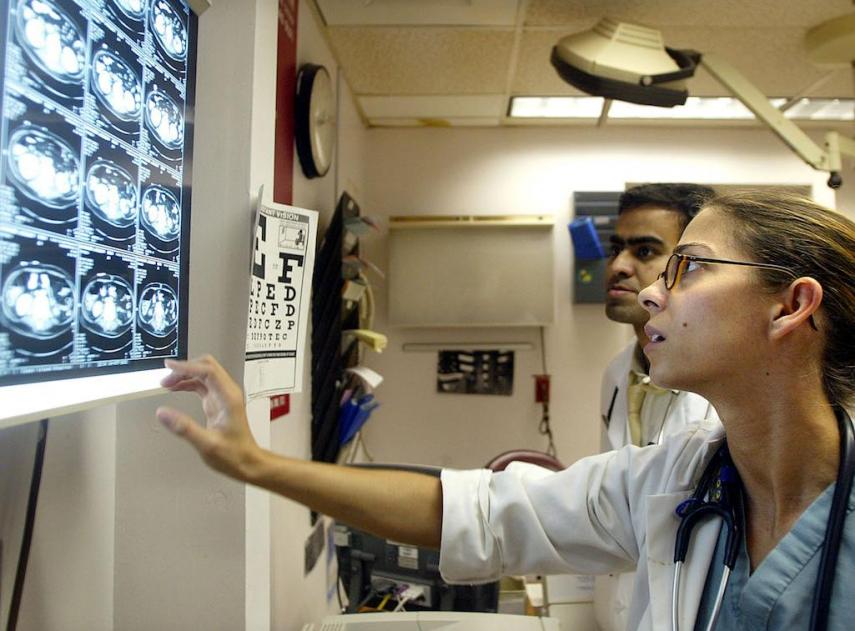 Photo: Mario Tama / Getty
Photo: Mario Tama / GettyGoogle Inc. works in many areas, including medicine. The company's specialists are now developing a software platform that could predict the consequences of the disease for the patient. Such a system, analyzing the patient’s medical book and other data that is in the hospital’s database regarding a particular person and his illness, may suggest the duration of patient’s treatment in a hospital or even predict how long a person with a complex illness will die.
And this is not science fiction, but reality. Not long ago, a
special algorithm of the company showed doctors a rather high probability of death of a patient with breast cancer during her stay in hospital (it is clear that the patient herself was not told anything). And so it happened - she died within a few days. Nevertheless, the company does not implement its project at all for gloomy forecasts. At the core of all is the idea that doctors can get accurate data about the health of their patients and prescribe high-quality treatment.
It is especially worth noting that the service from Google does not need specially formed data to obtain patient data. The company's neural network is capable of analyzing PDF documents or just photographs of the pages of a patient's medical record (however, the situation with handwritten text is not disclosed). Based on all the data obtained, the system makes an assumption about the patient's condition and his health in the near future.
The idea of using AI for analyzing patient data is not new. The fact is that doctors always have a huge amount of data with which they can not always handle themselves. Often, specialists simply do not have enough time to process all the available information to a particular person or, especially, to patients of a large hospital department. In addition, even if the specialist was able / was able to get acquainted with all the available information, he is not always able to draw the right conclusions about the patient's health and the methods of treatment that must be chosen in a particular situation. As a result, the probability of medical error remains quite high.
As for the use of AI in medicine, there are also
problems here . The main thing is that the software platform needs specially formed data. It turns out a vicious circle - in order for the machine to start work, it needs specific information in a special format. It takes a lot of time to prepare it, which doctors don’t have. At the moment, the process of preparing the machine takes about 80% of the total time the AI participates in analyzing the patient's condition. The developers of Google Inc. were able to teach the car to “read” the data presented in the usual way. The computer prepares data for itself.
And this system really works. Representatives of the company said they now plan to conduct clinical trials of a new platform in a number of clinics. If everything goes well, Google's AI will become a commercial service, which the corporation has been seeking for a long time. Back in 2016, the Alphabet holding announced that AI is a priority for the company, and not just artificial intelligence, but its commercialization.
Here work
began in several directions at once, including autopiloting of machines, in-depth training of machines, and medicine. The company chose the most promising areas for work and began to actively act.
Of course, Google is far from the only IT company operating in the medical field. Similar projects involved, for example, IBM. And the latter has also achieved a lot. Generally speaking, there are dozens or even hundreds of startups currently working in the medical services market that are somehow connected with the AI sphere. Some of them are also developing hospital platforms that can diagnose or help doctors work with patient information. But the problem is that most of the existing models do not take into account a number of important points. For example, whether the patient was operated on earlier and what he was sick of several years ago. But sometimes such information is extremely important for the diagnosis and prescription of the correct treatment.
Google representatives said they believe that in the future, and not so distant, AI will be an effective auxiliary tool for doctors in clinics.